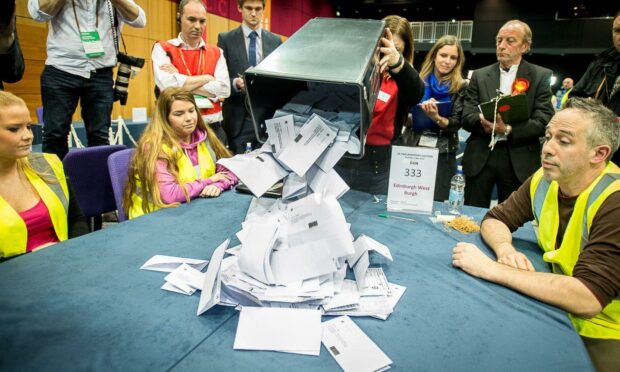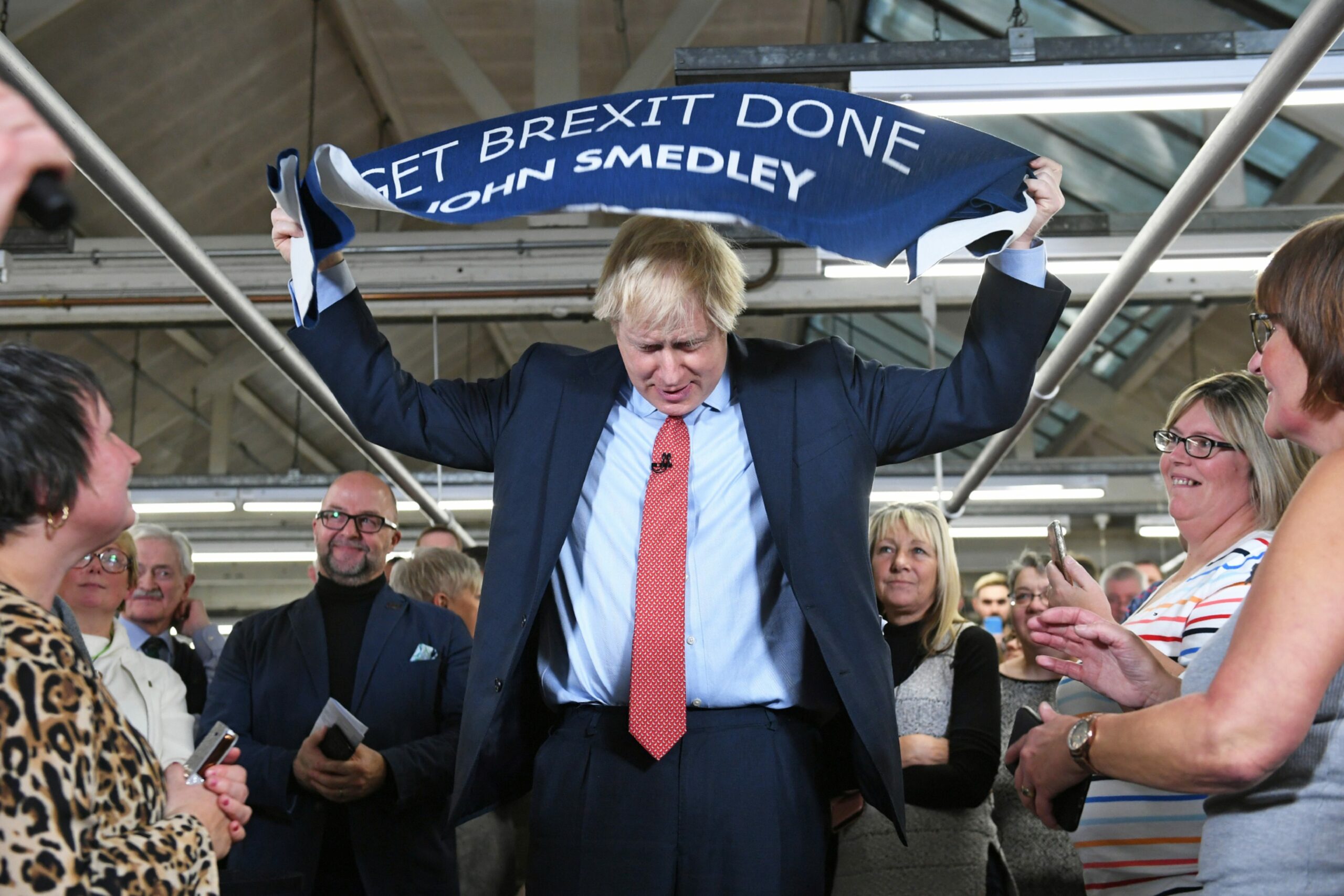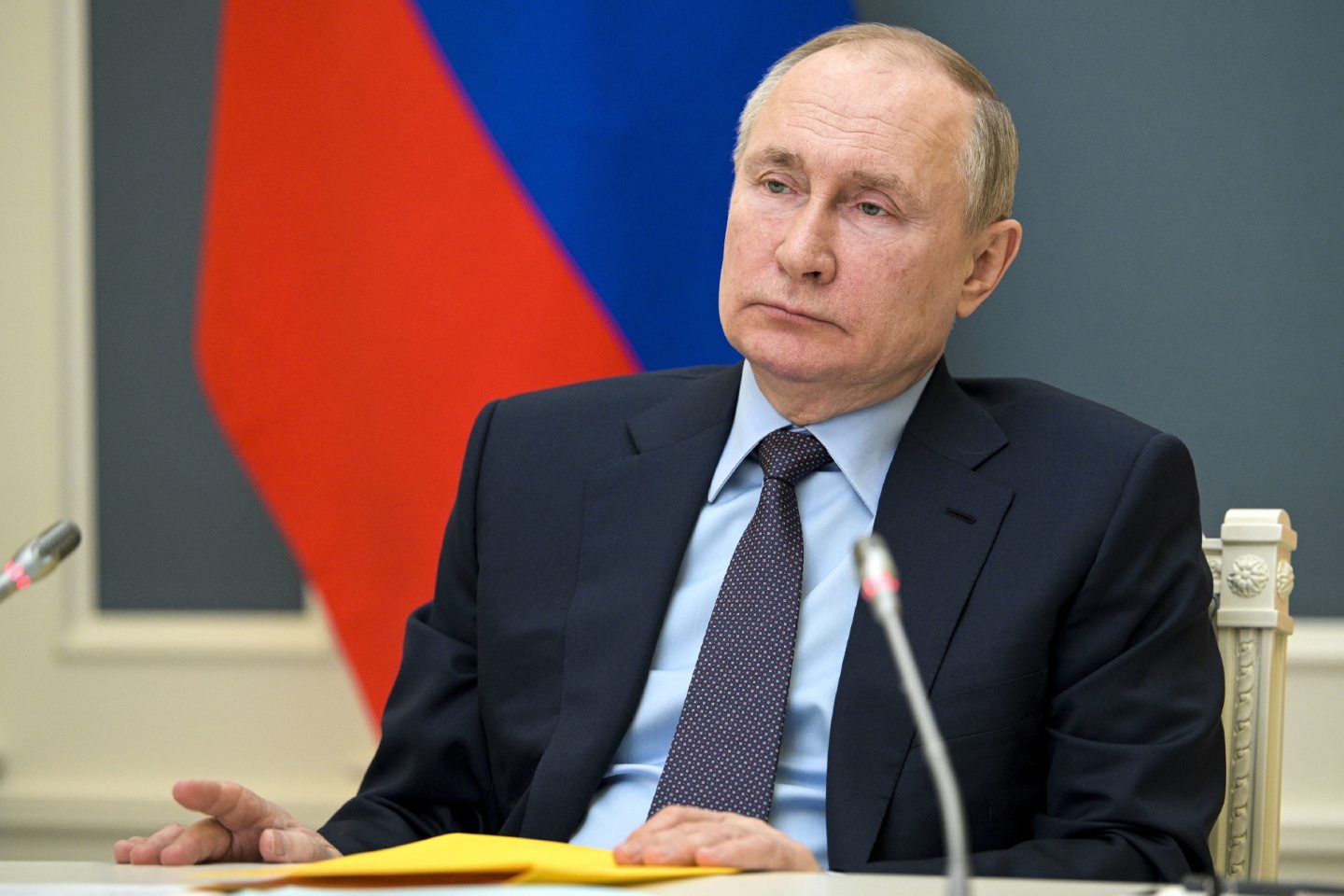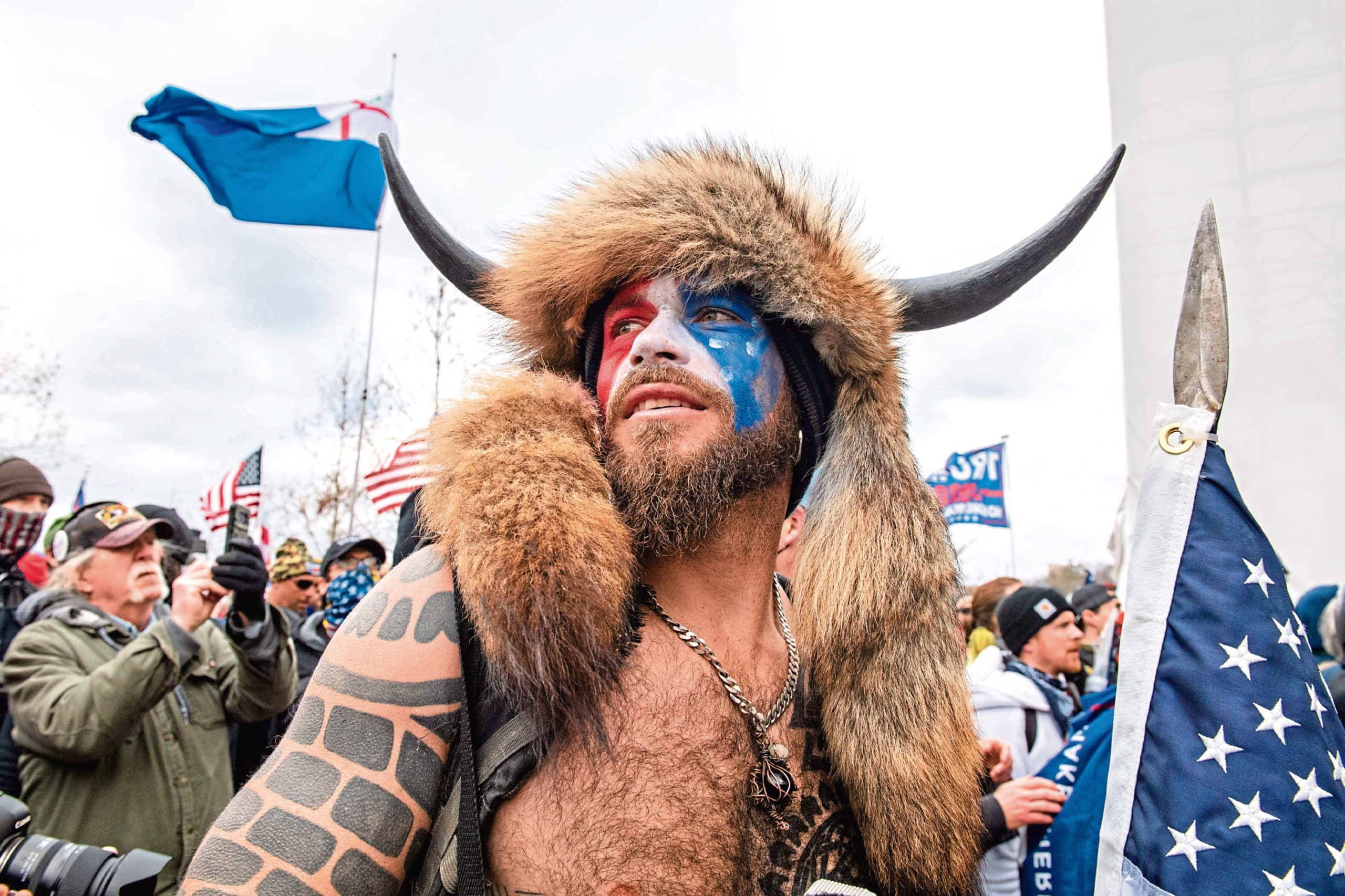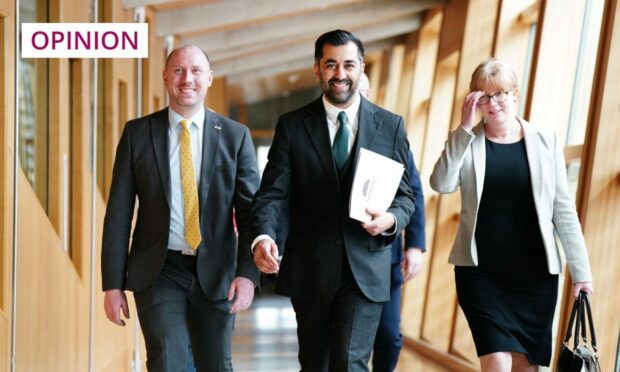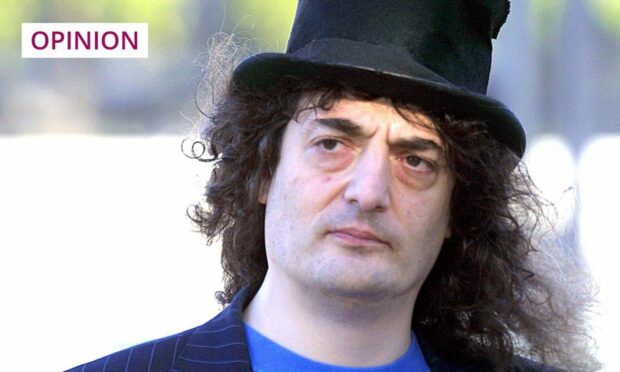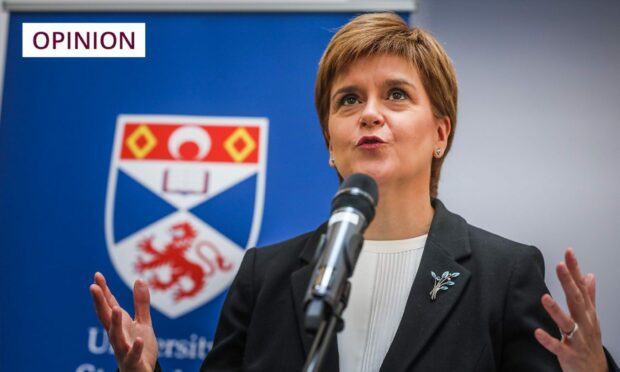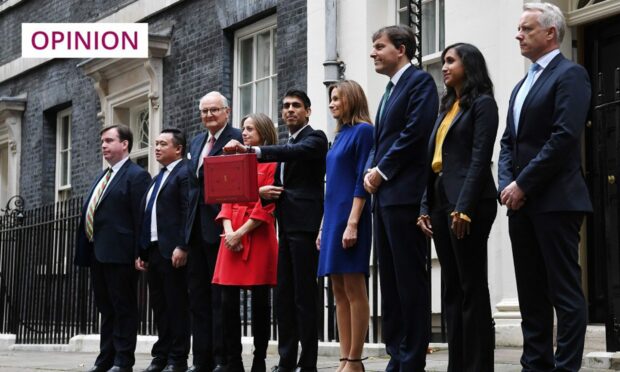How would you describe yourself, politically-speaking?
Left or right? Unionist or nationalist? SNP or Labour or Tory? Brexiteer or remainer?
In these times of heightened identity politics, most of us have causes to which we passionately commit, and which help to define both our sense of ourselves and the image we present to others.
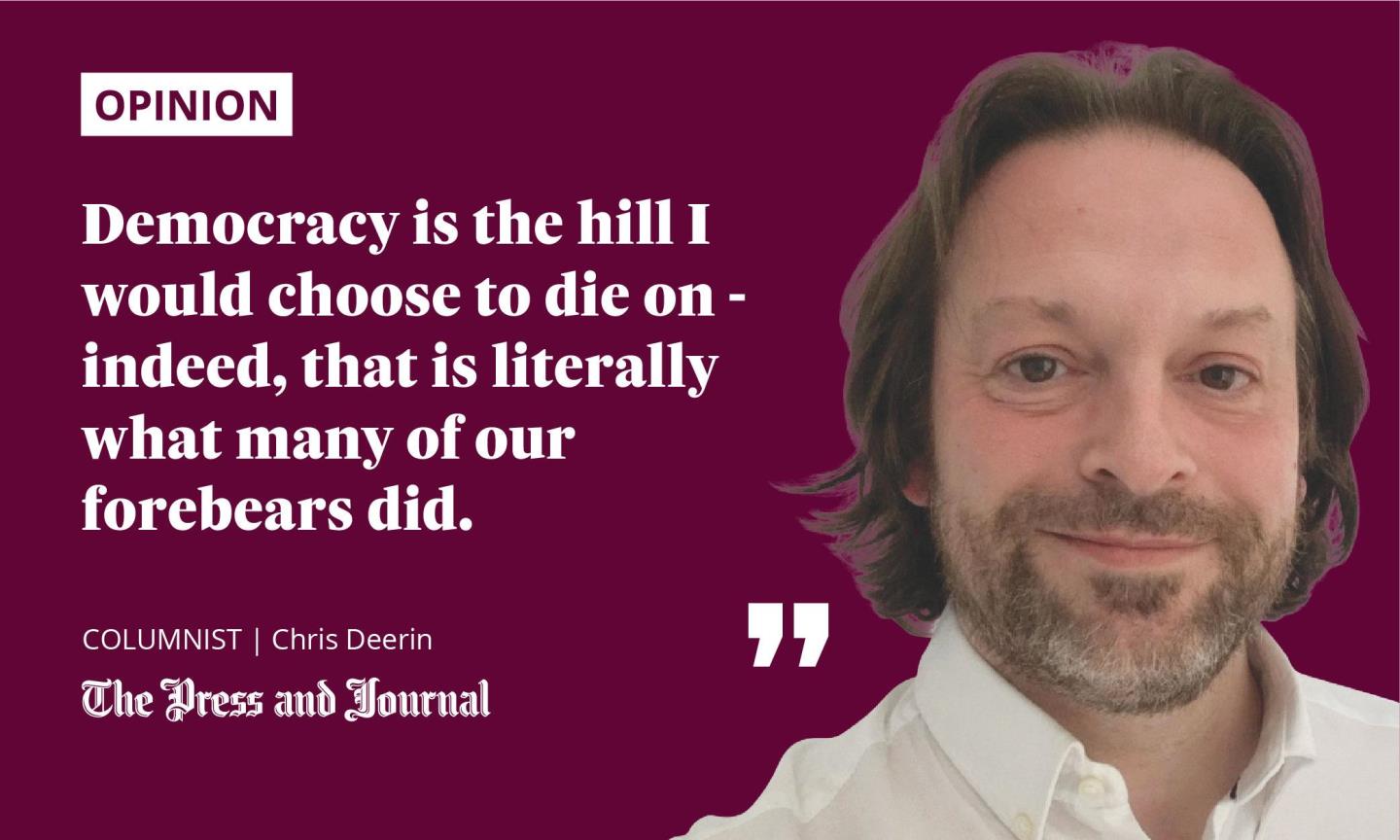
But, it seems to me that there is one core identity that is vastly more important than the rest, that is less-often spoken about, and that, currently under the severest of global strains, is in need of defence: that of democrat.
Democracy is the hill I would choose to die on – indeed, that is literally what many of our forebears did. It is what makes all those other identities possible, allowing us to live in a free, coherent, yet fiercely disputatious society.
Democracy is the healthiest, fairest, most peaceful system available
What is democracy? Well, obviously, it is the right to vote as a national community to either retain or remove from power those we have given temporary permission to rule over us. This decision will be based on a number of things – which party sets out the most impressive prospectus for the forthcoming period, whether we want the last government to continue or believe it’s time for change, and, often these days, which leader we think will make the best prime or first minister.
But, the key thing about democracy is that, once the decision is taken, everyone observes the rules. Those leaving government accept the voters’ decision and do so gracefully, or the opposition accept they have fallen short and must try again next time. Whether you disagree with the result, whether you are enraged by it, feel cheated or bereft, the choice has been made.
Across the planet, democracy is in reverse or under attack
We are all free, from that point, to argue fiercely against the new administration’s policies, to call out malfeasance and sharp practice when we see it, to campaign for certain causes and seek to win public approval for them, to change our fellow voters’ and even lawmakers’ minds.
But, it all starts with accepting the result – understanding that, for all its frustrations and heartbreaks and titanic, screeching clashes, democracy is the healthiest, fairest, most peaceful system available. It is the indispensable public value.
The return of the political strongman
I make this point because, across the planet, democracy is in reverse or under attack. This era of populism, and the backlash against “elites” and many of the policies of the past few decades, has seen the return of the political strongman. We knew this century would be a struggle between the American and Chinese models of governance, but relatively few of us expected the latter to seem so appealing.
On the European continent, illiberal right-wing governments in Poland and Hungary are quashing civil liberties and making a mockery of the free institutions, such as the courts and the media, that protect democratic societies. The ongoing French election campaign is being despoiled by the racist, misogynistic and authoritarian right-winger Éric Zemmour. Serbia – the home of vaccine refusenik Novak Djokovic – is no love-in.
Vladimir Putin is threatening war in Ukraine and demanding the return of the Eastern European “sphere of influence” that was lost with the collapse of the Soviet Union. He has also sent forces into Kazakhstan in order to “stabilise” the situation there. And, in China, which watches all this with a certain smug satisfaction, the Communist Party continues its uninterrupted reign, now under the bullish and expansionist president-for-life, Xi Jinping.
We must be prepared to fight for democracy
In the US itself, often seen across the world as a democratic light in the darkness, the political system has devolved into partisan chaos. Many Republicans, still under the spell of Donald Trump, continue to dispute the result of the 2020 election and have thought themselves into some dark places and staggering conspiracy theories.
We’ve seen before what happens when illiberalism and totalitarian fervour spreads like a rat-borne virus
Even in doughty old Britain, Boris Johnson’s government has picked up a few authoritarian tricks, turning its fire on parliament, judges, the BBC and the press, the civil service, the EU, and other potential blocks on its freedom of action.
I’d like to think that, in the end, the UK is too robustly commonsensical for this kind of behaviour to prevail – we certainly have been in the past. The result of the Brexit referendum was widely accepted, even if many of us voted the other way and would prefer either a return to the EU or at least a more constructive relationship with it. In Scotland, supporters of independence – as is their right – press relentlessly for another referendum, but show little real sign of seeking to step outside of democratic norms.
We’ve seen before what happens when illiberalism and totalitarian fervour spreads like a rat-borne virus. It might even turn out to be the unexpected struggle of our times. If so, democracy must remain the hill we are all willing to die on.
Chris Deerin is a leading journalist and commentator who heads independent, non-party think tank, Reform Scotland
